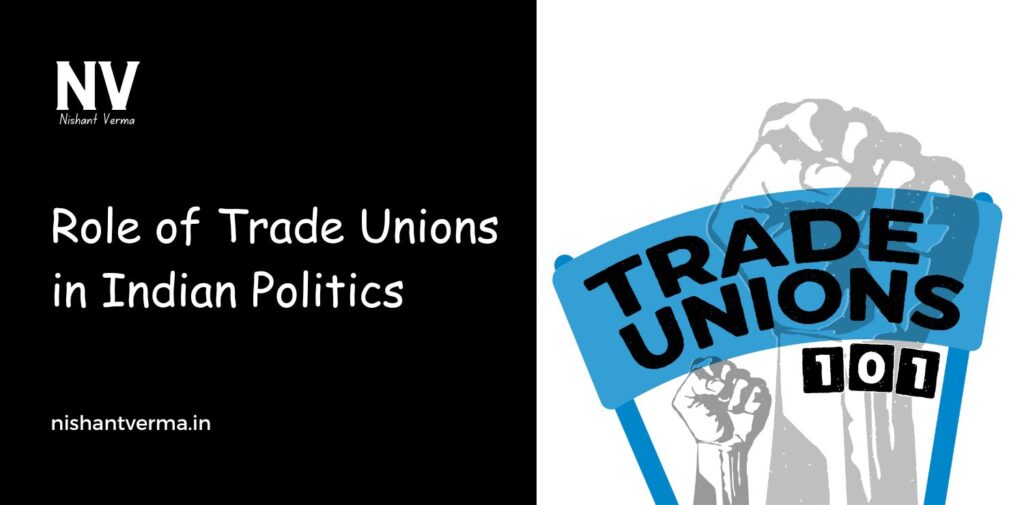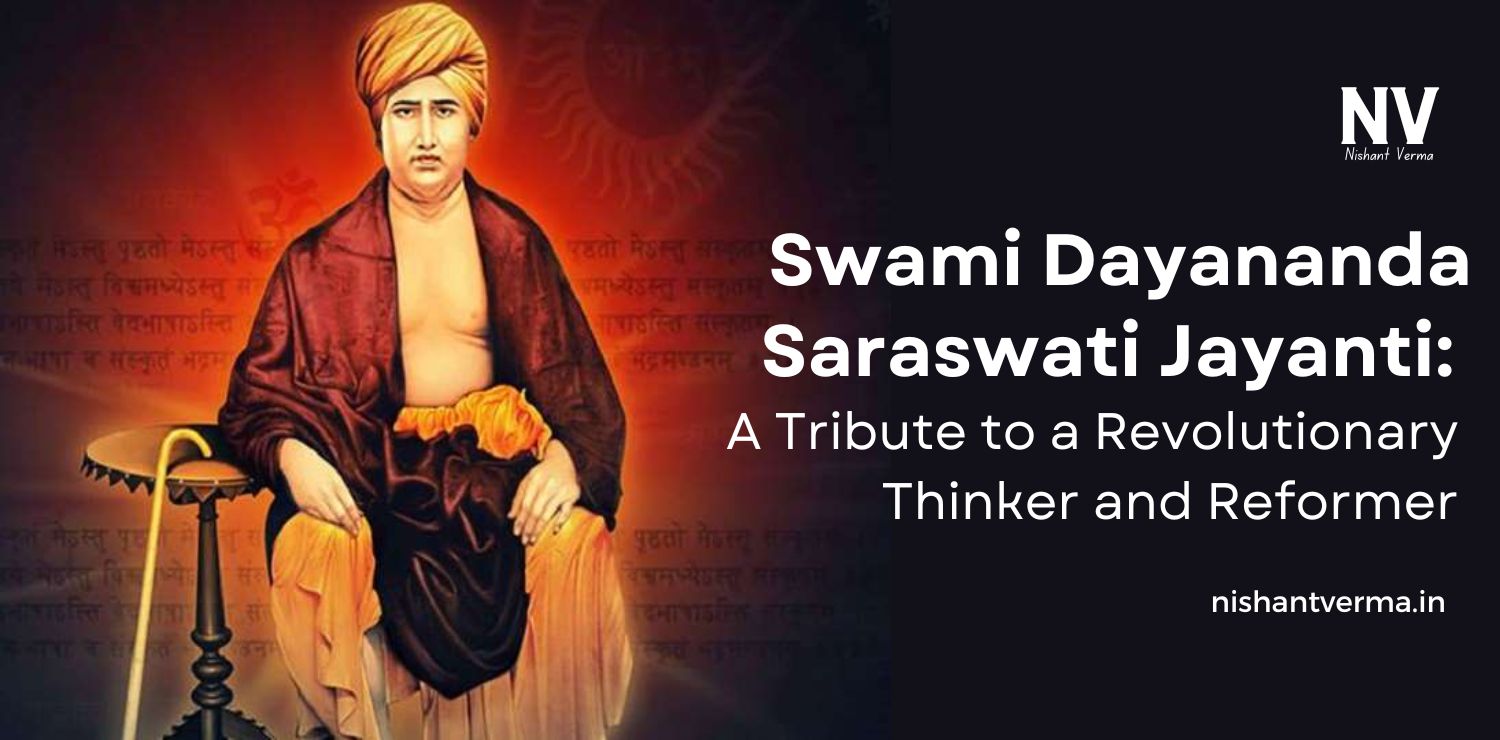India is a country with a large population, many of whom work in factories, farms, offices, and other industries. Over the years, these workers have played a significant role in shaping the country’s economy and society. However, working conditions, wages, and rights have often been a challenge for many. To improve these conditions, workers in India have come together to form organizations called trade unions. These unions have not only worked to protect workers’ rights but have also become a significant part of Indian politics. In this article, we will explore the role of the unions in Indian politics, how they have influenced the country, and the challenges they face.
What Are Trade Unions?
A trade union is an organization formed by workers to protect their rights and interests. When workers come together in a union, they can speak with one voice to negotiate better wages, working conditions, and benefits with their employers. Unions also fight for workers’ rights such as job security, safety, and fairness at the workplace.
In India, workers in various industries like textiles, manufacturing, construction, and even government offices have formed the unions. These unions have played an important role in raising the voice of the working class and ensuring that workers are treated fairly.
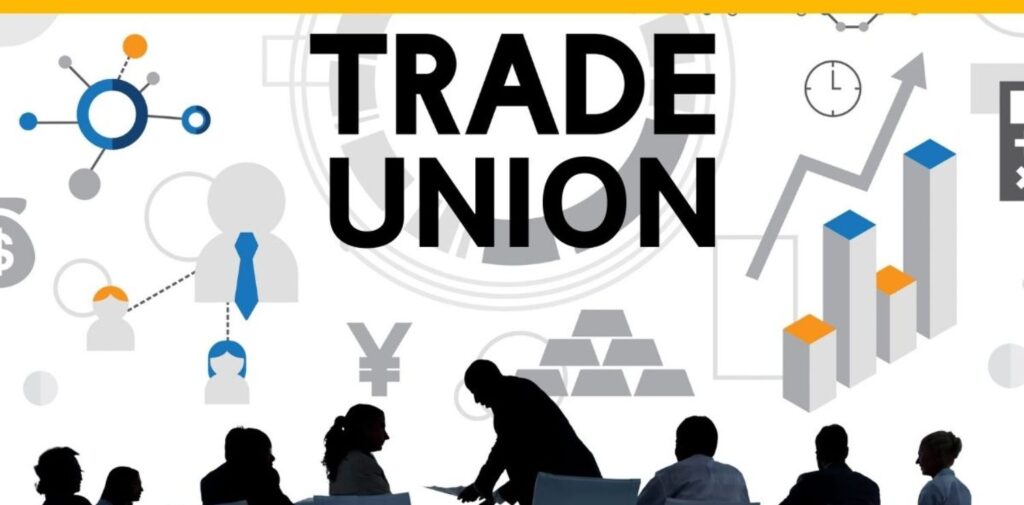
The Birth of Trade Unions in India
The story of trade unions in India dates back to the time of British rule. During this period, workers faced poor working conditions, long hours, low wages, and even unsafe workplaces. There were no laws to protect workers, and many were exploited.
As India moved toward independence, workers started to realize the importance of coming together to fight for their rights. The first organized trade union in India was formed in 1918 by Lala Lajpat Rai and others. This union, known as the Indian National Trade Union Congress (INTUC), became a voice for workers, demanding better working conditions and better pay.
Over time, more unions were formed in India, and they became an important part of the country’s fight for independence. Trade unions also became a way to unite workers across different industries, and they played a role in spreading the message of social justice and equality.
Trade Unions and Indian Politics
Trade unions did not just focus on improving the conditions of workers in their industries; they also became involved in politics. They started to influence the political decisions of the government and played a key role in shaping India’s post-independence policies.
After India gained independence in 1947, many leaders in the country recognized that workers needed a voice in politics. As a result, several political parties began to support unions to fight for workers’ rights. This marked the beginning of a strong connection between trade unions and political parties in India.
Key Political Parties and Trade Unions
In India, different political parties have supported various trade unions. The two main political ideologies that have been closely associated with trade unions are the Left-wing parties and the Right-wing parties.
- Left-wing Parties: The Communist Party of India (CPI) and its offshoots, like the Communist Party of India (Marxist) or CPI(M), have been very supportive of trade unions. These parties believe in socialism, where the government controls key industries to ensure fairness and equality for all workers. Many unions in India, especially in industrial regions like West Bengal and Kerala, have been influenced by these parties. The CPI and CPI(M) have worked closely with trade unions to push for policies that protect workers’ rights, such as higher wages, better working conditions, and social security benefits.
- Right-wing Parties: On the other hand, Right-wing parties like the Bharatiya Janata Party (BJP) have had a more complex relationship with trade unions. The BJP, which believes in free markets and less government intervention in business, does not always prioritize the demands of the unions. However, there are some unions that are linked with right-wing political groups. These unions tend to focus more on promoting the interests of workers in the private sector and less on large-scale government intervention.
The support of political parties to trade unions has allowed workers to demand change more effectively. By forming a strong alliance with political leaders, unions have been able to press for important laws and policies that benefit the working class.
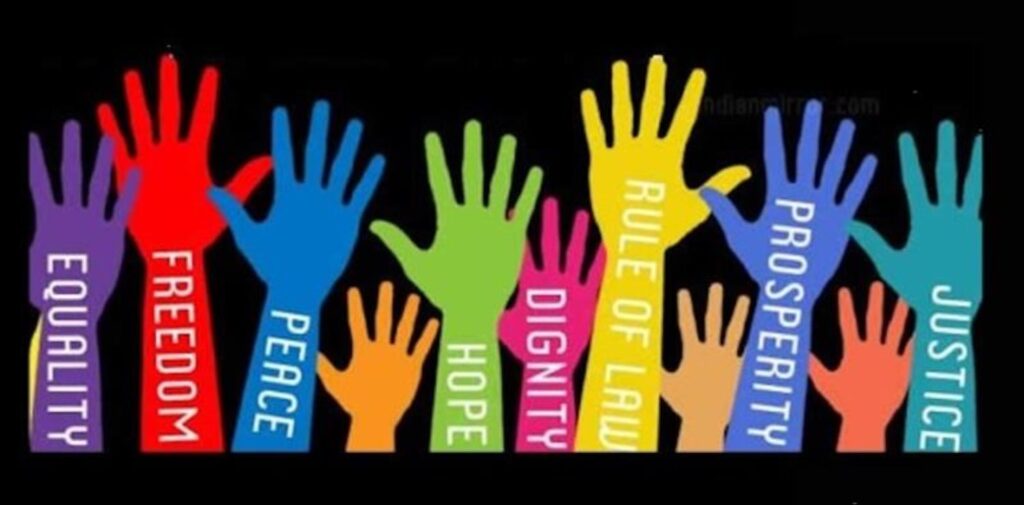
Trade Unions and Workers’ Rights
One of the most significant roles of trade unions in India has been advocating for workers’ rights. Some of the key demands made by trade unions include:
- Fair Wages: Trade unions have worked hard to ensure that workers receive fair wages for their work. They negotiate with employers to set minimum wages that ensure workers can live with dignity.
- Job Security: Unions fight to make sure that workers do not lose their jobs without just cause. They push for laws that protect workers from being unfairly dismissed from their positions.
- Better Working Conditions: Many workers in India have faced unsafe working conditions in factories and other industries. Trade unions have worked to improve these conditions by demanding better safety standards, proper ventilation, and clean environments.
- Social Security and Benefits: Trade unions in India have fought for social security measures such as healthcare, pensions, and other benefits. This ensures that workers are not left helpless in case of illness, old age, or accident.
- Rights for Women and Marginalized Groups: Over the years, the unions have also worked to include the rights of women and marginalized workers. They have fought for equal pay for women, better opportunities, and protection against exploitation.
Through strikes, protests, and negotiations, trade unions have succeeded in getting many of these demands accepted by employers and the government. They have made significant contributions to improving the lives of workers and their families.
The Power of Strikes and Protests
Strikes and protests have been an important tool for trade unions in India. When workers are not able to get what they need through negotiations, they sometimes go on strike. This means that workers stop working in protest to demand their rights. Strikes can be powerful, as they disrupt businesses and force employers and the government to take notice.
One of the most famous strikes in India was the Bharat Bandh or all-India strike, which was organized by trade unions in 2012. Millions of workers across India took part in this strike, protesting against rising prices and poor working conditions. The strike was a significant event, showing how united trade can be in influencing national politics.
Challenges Faced by Trade Unions
While trade unions have played a vital role in Indian politics, they have also faced several challenges. Some of these challenges include:
- Weakening of Unions: Over the years, many trade unions have become weaker due to a lack of unity among workers and changes in the economy. New industries and sectors like technology and services have grown, but many of these workers do not have strong trade unions.
- Political Influence: Sometimes, trade unions are seen as being too closely linked to political parties. This can make it difficult for them to act independently and fight for workers’ rights without political interference.
- Globalization and Privatization: With India opening up its economy to the world, many industries have been privatized, and global companies have entered the market. This has made it harder for trade unions to protect workers’ rights in these industries.
- Repressive Laws: In some cases, the government has passed laws that limit the power of unions. These laws can make it difficult for unions to organize protests or strikes and can prevent them from achieving their goals.
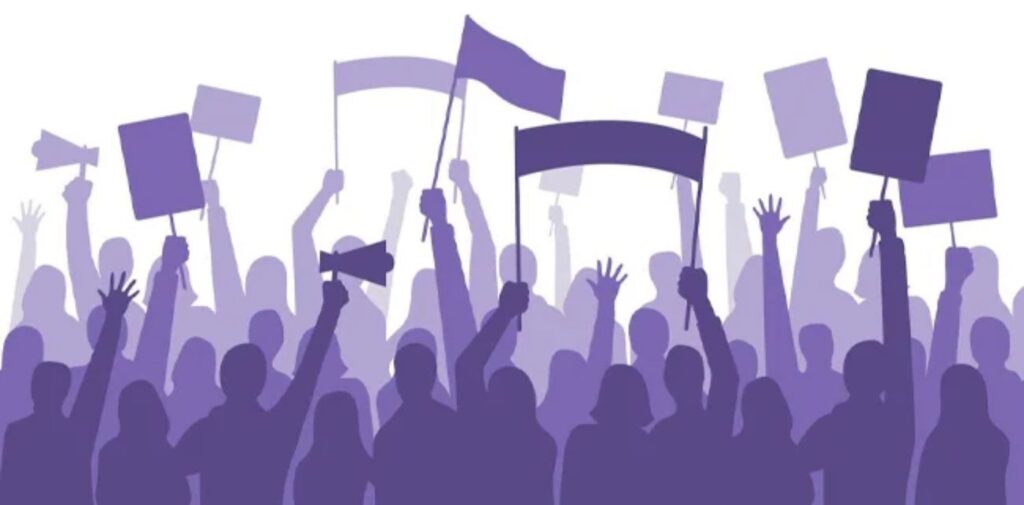
The Future of Trade Unions in India
Despite the challenges, trade unions continue to play an important role in Indian politics and society. As the country develops and faces new economic challenges, trade unions will remain essential in advocating for the rights of workers. For example, with the rise of the gig economy (people working part-time or on temporary contracts), new forms of unionism may emerge to protect the rights of these workers.
In the future, trade unions will need to adapt to changing industries, strengthen their unity, and work with both political parties and workers to protect the interests of the working class. If they can overcome their challenges and continue to evolve, unions will remain a key force in shaping India’s political landscape.
Conclusion
Trade unions have played a crucial role in the political and economic development of India. From their early days of fighting for workers’ rights to their ongoing influence in national politics, they have helped shape the way workers live and work in India. By advocating for fair wages, better working conditions, and the protection of workers’ rights, trade unions have made a positive impact on millions of lives. Though they face challenges, their role in Indian politics remains as important as ever, and they will continue to be a vital part of the country’s future.

